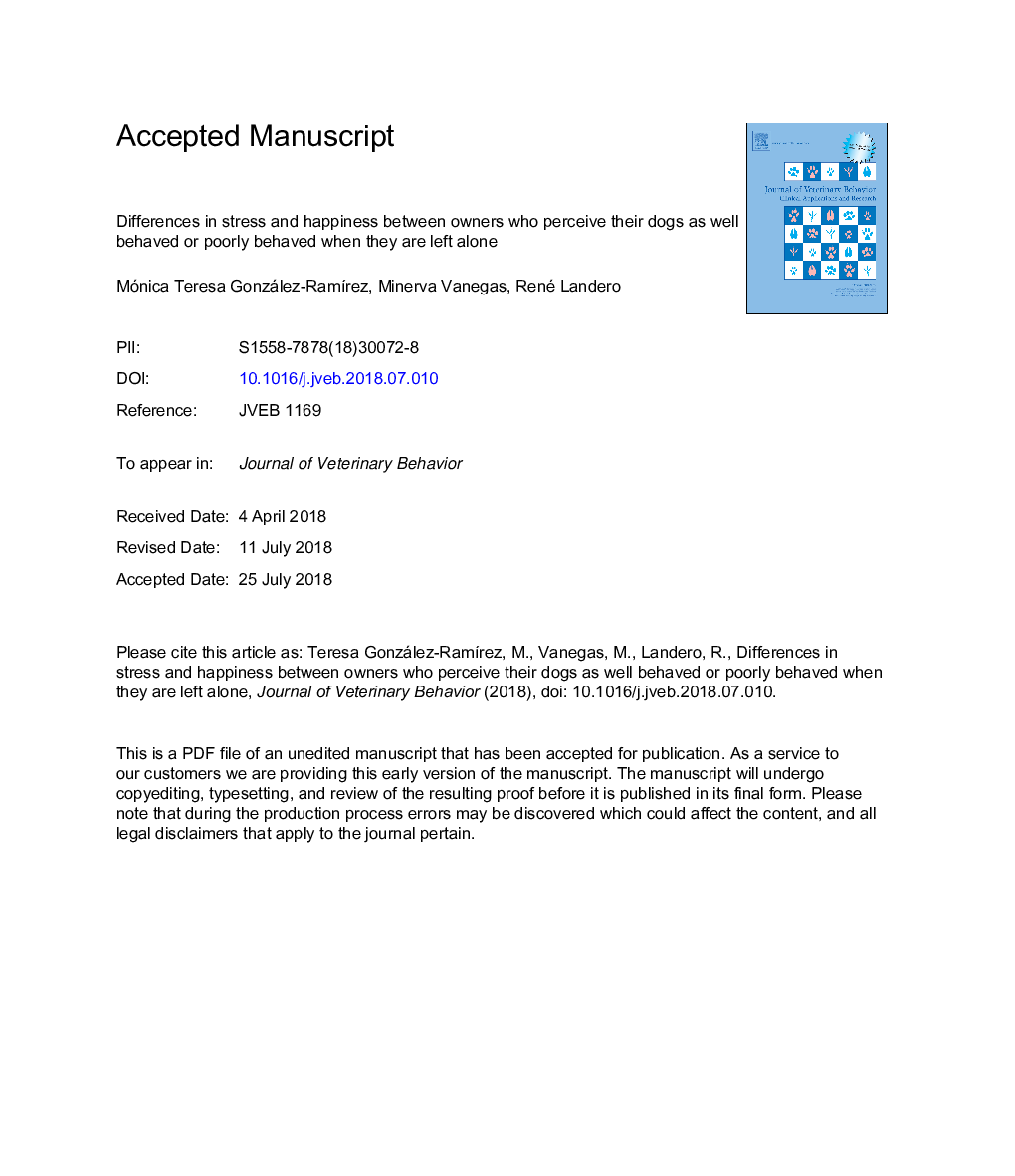| Article ID | Journal | Published Year | Pages | File Type |
|---|---|---|---|---|
| 8956372 | Journal of Veterinary Behavior: Clinical Applications and Research | 2018 | 22 Pages |
Abstract
This study was performed to identify differences between a group of 36 dog owners who reported separation-related behavioral problems in their dogs and a group of 40 dog owners who perceived their dogs as well behaved in their absence. The variables compared between these groups were attachment, trainability, human-dog relationship, owner-dog compatibility, happiness, and stress. Dogs whose owners perceived that they were well behaved when left alone had more years within the household and higher scores in trainability; these owners also reported a better relationship with the dog and lower attachment scores than the group that perceived separation-related problems in their dogs. In addition, those owners who saw their dogs as well behaved when left alone showed higher perceived happiness and lower perceived stress. The equivalence in compatibility and the differences found in the mentioned variables suggest that owners and their dogs are compatible in activity preferences and in emotional variables such as anxiety or stress. It is possible that humans with higher levels of stress do not have a relaxed relationship with their dogs, which may contribute to their annoyance about their dogs' behavior, and they spend less time with them. This could explain why they perceived their dogs as having separation-related behavioral problems. A dog's behavior could be a source of stress for the owner affecting the owner's perceived happiness.
Keywords
Related Topics
Life Sciences
Agricultural and Biological Sciences
Animal Science and Zoology
Authors
Mónica Teresa González-RamÃrez, Minerva Vanegas-Farfano, René Landero-Hernández,
